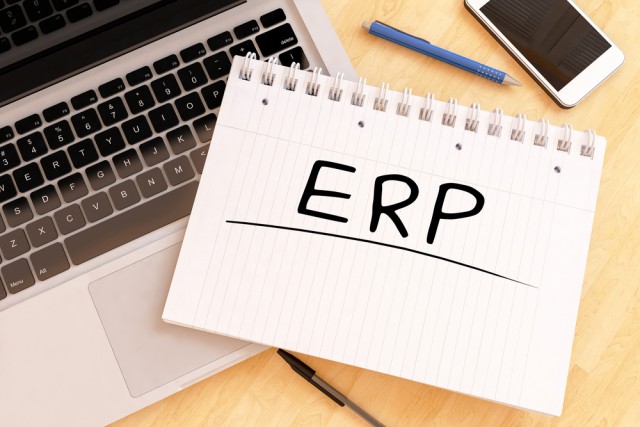What you need to know about enterprise resource planning

We’ve already covered what businesses need to know about enterprise content management (ECM), so now it’s time to move on to another popular business tool: enterprise resource planning (ERP).
ERP is business process management software -- typically consisting of a suite of integrated applications -- that allows an organization to manage its entire business and automate many back-office functions.
It is designed to be used by larger enterprises -- often requiring dedicated teams to customize and analyze the data -- and integrates various facets of an operation, including sales and marketing, product planning, manufacturing and inventory management, making sure everything is as efficient as possible.
According to Netsuite, the concept dates back to the 1960s where it grew out of manufacturing planning systems. By the 1970s, it had developed into material requirements planning [MRP], taking in the ordering of raw materials and the warehousing and distribution of finished products. The more traditional form of ERP was born in the 1990s when software was created to combine more back office processes. It has now moved into advanced business intelligence (BI) functions and other highly complex processes and is used in a wide range of different industries.
Benefits to Businesses
ERP software offers several benefits to businesses, the overarching one being that it enables different business functions to work more closely together and be more efficient, which can save both time and money for companies of all sizes.
Being more specific, reporting is greatly improved as it follows an automated template system that can be accessed in real time across all departments, meaning organizations can respond to complex data requests more quickly. It is easier to provide high-quality customer service as relationships can be improved through faster and more accurate access to customers' history and information, the power of data analytics can be harnessed to enable better decision making, and improved company-wide visibility improves collaboration across different departments.
Security is also improved, as everything can be tracked, centralized policies can be applied across the organization and data access can be controlled with the use of advanced user management and access control.
There are, of course, some downsides of ERP that enterprises will need to contend with. For example, the software costs even for off-the-shelf packages can be rather substantial (including indirect costs such as IT infrastructure upgrades) and often the paypack of an ERP system will not be realized until sometime after the implementation, which can put off some financial officers.
Furthermore, the participation of employees across the organization is essential to its success so proper training is required and ERP deployments are usually highly time-consuming. It can take over a year before the system is fully functional, however, most ERP packages are in modular form so can be rolled out across a company in stages.
ERP systems are following the trend of other software in moving to the cloud. This has advantages in terms of flexibility as the system can be more easily scaled as the business grows, without the need for additional hardware investment.
Market Options
For large enterprises, the ERP market is dominated by big players, the likes of Oracle, Netsuite and SAP. Oracle's ERP solution boasts over 37,000 customers and is known for its deep software functionality and high flexibility and is the number two market share leader.
NetSuite's is the world's number one cloud-based ERP solution, citing key benefits in cost-saving, decision making and productivity, whereas SAP claims its software is used by nearly 50,000 customers and "has a proven track record of driving competitiveness and streamlining business processes".
Packages that started out as accounting systems like Microsoft Dynamics are increasingly expanding their capabilities and taking on many of the functions of ERP packages, adding further to the competition. For smaller organizations there are specialist packages aimed at meeting the needs of specific industries, pharmaceuticals or food processing for example.
Published under license from ITProPortal.com, a Future plc Publication. All rights reserved.
Photo Credit: Mathias Rosenthal/Shutterstock